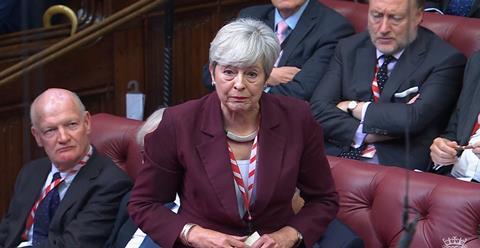The assisted dying bill is still making its way through Parliament. James Mildred explains how Peers have responded to it, and explains what’s likely to happen next

The Terminally Ill Adults (End of Life) Bill which would legalise assisted suicide for adults with a terminal illness and 6 months or less to live in England and Wales was heavily criticised by Peers on Friday.
It adds to the constant chorus of criticism from a whole series of stakeholders ever since Kim Leadbeater MP introduced her assisted suicide Bill in October last year. From Royal Colleges to palliative care doctors and disability right groups, the proposed private members’ bill has always had its critics.
After squeaking through the Commons at Third Reading in June, with a significantly reduced majority, Friday was the first time Members of the House of Lords, the UK Parliament’s second chamber, had a chance to scrutinise this legislation in some detail.
What was especially striking was that the criticism of the proposed law was not limited to one political tradition or party. Peers from across the political spectrum lined up to express their opposition.
Especially fierce were the comments on the actual drafting of the Bill. Even some Peers, like Lord Blencathra, who are supportive of assisted suicide in principle said they could not support this assisted suicide Bill.
There were very strong speeches during the debate. For example, former Prime Minister Theresa May accurately described the legislation as an assisted suicide Bill: “I have a friend who calls it the license to kill Bill. It is not an assisted dying Bill. It is an assisted suicide Bill. Suicide is wrong. But this Bill effectively says that suicide is okay. What message does that send to our society? Suicide is not okay. Suicide is wrong. This Bill is wrong and in my opinion it should not pass.”
The Bishop of London, Dame Sarah Mullaly spoke from her experience as the former chief nursing officer. She argued that most people die well: “I am a former government chief nursing officer, and I chaired the UK bereavement commission. But as a nurse, a priest, a daughter, and a granddaughter, I have had the privilege of being with many people when they die. Most people die well. I have known people to experience the most valuable days of their life as it comes to an end.
Why oppose assisted suicide?
I’m conscious that the church is divided on this issue. Personally, I do not think it should be. To me, the Bible is clear that humanity does not have the right to decide who lives and who dies. As 1 Samuel 2:6 says: “The Lord kills and he brings alive.” Our times are in his hands.
That said, it is not as if the scriptures are silent on the reality of brutal suffering and the desire for life to end. You can think of Job, who was so afflicted with illness and tragedy that he wished his life was over. “Oh, that I might have my request, that God would grant what I hope for, that God would be willing to crush me, to let loose his hand and cut off my life!” (Job 6:8-9).
During the debate there were heartbreaking stories. Such cases should summon from us the deepest compassion and sympathy. We want to give people as good a death as possible.
Yet in the Christian worldview, suffering is not meaningless and there are purposes of mercy and grace even in the valley of the shadow of death. In his incarnation, our Lord Jesus was a man of sorrows and suffered a terror worse than anyone before or since. We have a suffering God who has the power to help us in our weakest moments.
This Bill suggests some lives are not worth as much as others. Christian compassion says the opposite. You matter because you are you and your dignity and value is God-given and remains whatever your circumstances.
While proponents talk about personal choice, the truth is legalised assisted suicide impacts the whole of society
We must also recognise the harm assisted suicide will cause to others. While proponents talk about autonomy and personal choice, the truth is legalised assisted suicide impacts the whole of society.
For example, around the world where assisted suicide is legal, you will observe the same tragic trends. Not only does the eligibility criteria expand over time, but culture itself is changed and there is evidence of investment in palliative care being reduced and increasingly undervalued.
It is for these fundamental reasons that at CARE we are working tirelessly to see this Bill defeated. Even if we ultimately are unsuccessful, it is still right to speak the truth and work to do what is best and right for the most vulnerable in our nation.
I invite you to pray with us that this legislation is rejected by Peers. There is one more day of second reading, before four days of committee hearings, if there is no vote (and by convention the Lords does not always vote at second reading). This will take us up to Christmas. Third Reading, the final vote on the Bill as amended will take place at some point in the new year.





































No comments yet